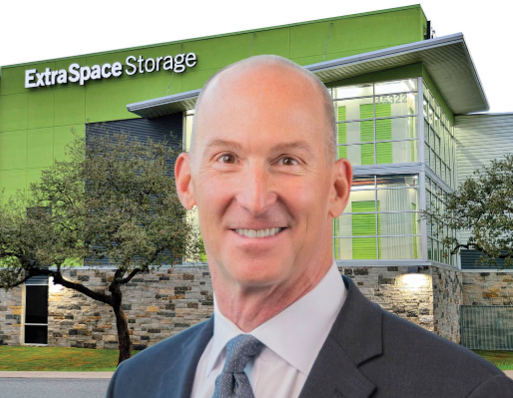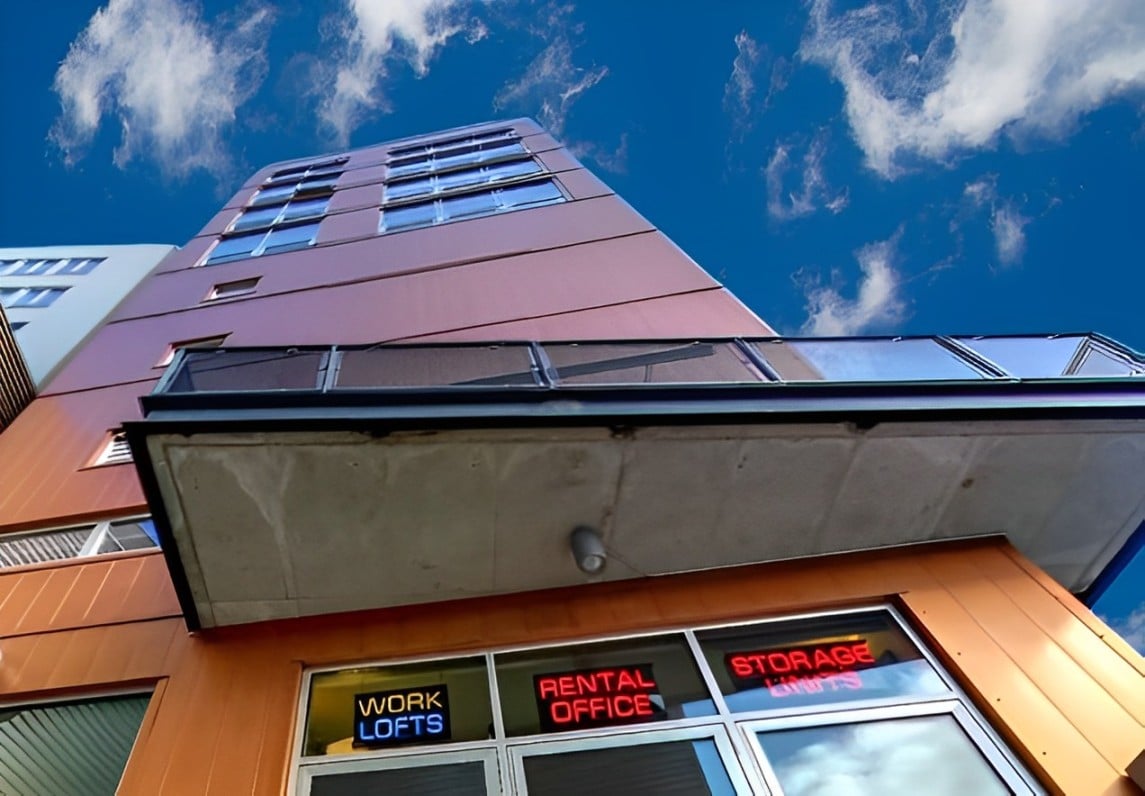Bill Flaherty
President & CEO of Rosewood Property Company
Although relatively new to the self-storage industry, Rosewood Property Company and its president and CEO, Bill Flaherty, are no strangers to the real estate sector. With more than 30 years of experience in the development, investment, and operation of institutional quality real estate including hotels, multi-family, retail, office, and industrial properties, it only made sense for Rosewood to enter the storage realm. The company, which currently owns 25 storage properties within eight states and has seven properties under development, has plans to stay in the storage business for the long haul, and one of its greatest advantages is its fresh perspective on the asset class.
A Frothy Market Rosewood Property Company joined the storage industry just three years ago when the acquisitions market was first starting to gain momentum. The company acquired an 18-property portfolio and seven other facilities while placing aggressive bids on several one-off properties.
“It is an increasingly difficult acquisitions market,” says Flaherty, adding that the company didn’t have the winning bids for many of those facilities even though they seemed promising. “Self-storage wanted to be discovered and it’s been discovered. It’s a great time for sellers.”
While Flaherty calls the current acquisitions market “frothy,” he acknowledges that his standards may be rather lofty. “We want first-class projects,” he says. “We want to keep our asset quality up.” Unwilling to settle for anything less, Flaherty and Rosewood Property Company established an acquisitions team to scout for existing, well-performing self-storage facilities in areas that would allow the company to grow its other real estate classes at the same time.
“I physically go see the assets before bidding,” says Flaherty, who enjoys being hands-on in the process and meeting with the brokers. “We are more interested in infill projects. We tend to favor cities were we can invest in more than just storage.” In essence, Flaherty says going this route enables the company to establish trust and relationships within those communities—a top priority for Rosewood Property. “We are very customer service focused and develop deep relationships,” he says, adding that the company has partnered with Extra Space Storage, which manages 24 of Rosewood’s 25 facilities.
However, there was one costly drawback to Rosewood’s approach to acquisitions: The company was spending a significant amount of resources and time searching for multi-story, climate-controlled properties within areas where the company did not have other investments such as multi-family complexes. “We look at other property types as well,” says Flaherty. “We want to invest deeper and broader in our targeted markets.”
Shifting Gears
To compensate for the competitive acquisitions market and the funds spent attempting to acquire properties, Rosewood decided to try its hand at self-storage development. The company updated its business plan, created a development platform, and went to work seeking parcels of land within familiar markets. Houston, San Antonio, and Dallas, Texas, as well as Denver, Colo., were the cities on the top of their development list.
“We currently have seven projects underway,” says Flaherty, who adds that Rosewood has long-term plans to build numerous additional properties in other targeted markets. Similar to its approach to acquisitions, the company is looking for infill locations. “They are less risky than building on the outskirts of new developing areas,” he says.
According to Flaherty, it’s “Texas’ time to shine,” which is one of the reasons Rosewood Property Company started developing in the Lone Star State. Of course, it also helps that the company is well acquainted with Texas.
“We know the area and follow trends such as where and why people move,” he says. “We are based in Texas, have substantial assets in Texas, and understand the growth projections for cities within the state.” Flaherty goes on to say that the company’s location within Dallas is a “strong base,” enabling them to reach surrounding markets within an hour. These easy-to-plan “day trips” allow them to make the most of their resources.
There is no denying that pockets of opportunity exist for self-storage development within Texas as it is one of the fastest growing states in the country. As a matter of fact, five Texas cities made it on U-Haul International’s 2014 list of top U.S. destination cities, which reflected moving data compiled from more than 1.7 million one-way U-Haul truck rental transactions during 2014. The list had Houston ranked as the number one destination for the sixth consecutive year. In addition, San Antonio was tied with Orlando, Fla., for fourth; Austin took the seventh spot; Dallas was number 18; and Forth Worth came in at 23rd. While this migration data does not reflect the cities’ overall growth, it does provide beneficial relocation insights.
Although Flaherty is optimistic about the projects Rosewood has under development, he remains cautious to over-building. “We are wary of large developments coming in,” he says, “but the pace of development leads me to believe that we won’t see as much new product as is being talked about.”
Moreover, Rosewood Property Company will continue to strengthen its relationship with Extra Space Storage over the next five years as the company plans to focus more on development than acquisition in the future. “We aim to create a culture of comfort within our stores,” says Flaherty. “Even though it’s our capital, Extra Space has valuable input when it comes to design and unit mix. And although we invest 100 percent of the capital, our facilities operate under the Extra Space brand. Self-storage is an operating business, and they offer a high level of technology and sophistication that we were not looking to duplicate.”
Sound Advice
Despite the fact that self-storage is—and will likely continue to be—the top real estate class for the near future, Flaherty offers tenderfoots some important advice. First of all, as many seasoned storage professionals would agree, due diligence is key! “Be sure to look at the growth and competition,” he says. Of course, this is applicable to all three types of storage ventures: acquisitions, conversions, and new builds. And keep in mind that just because an existing self-storage property is for sale, doesn’t mean it is a solid investment. Industry resources such as the Self-Storage Almanac and U-Haul’s list of top U.S. destination cities can provide a wealth of relevant data, but nothing will be as revealing and invaluable as the information you can gather from in-depth market research and comprehensive feasibility studies.
While Flaherty acknowledges that there is a need for new product in many areas across the United States, he warns industry newcomers that developing a self-storage facility can be much more difficult than acquiring one. “It can be challenging to develop. It takes time and can be risky. It takes plenty of patience,” Flaherty says, “but you will be rewarded if you create a good product.”
Erica Shatzer is a freelance editor and writer based in Hollidaysburg, Pennsylvania.
More Content
Popular Posts
The REITs new pricing strategy – lowering...
The self storage industry is in a precarious...
With the approval of both companies’...
Recent Posts
Owning or managing a self-storage facility...
Helen Keller is quoted as saying, “Alone we...
It’s often been said that “opportunity is...
There’s a saying in Florida that there are...
The landscape of the self-storage industry...
Last January, the prime interest rate was...
Many of us are seeking ways to bring in new...














